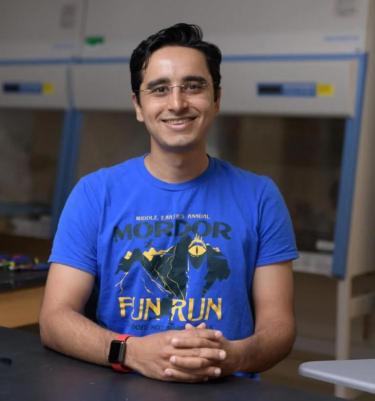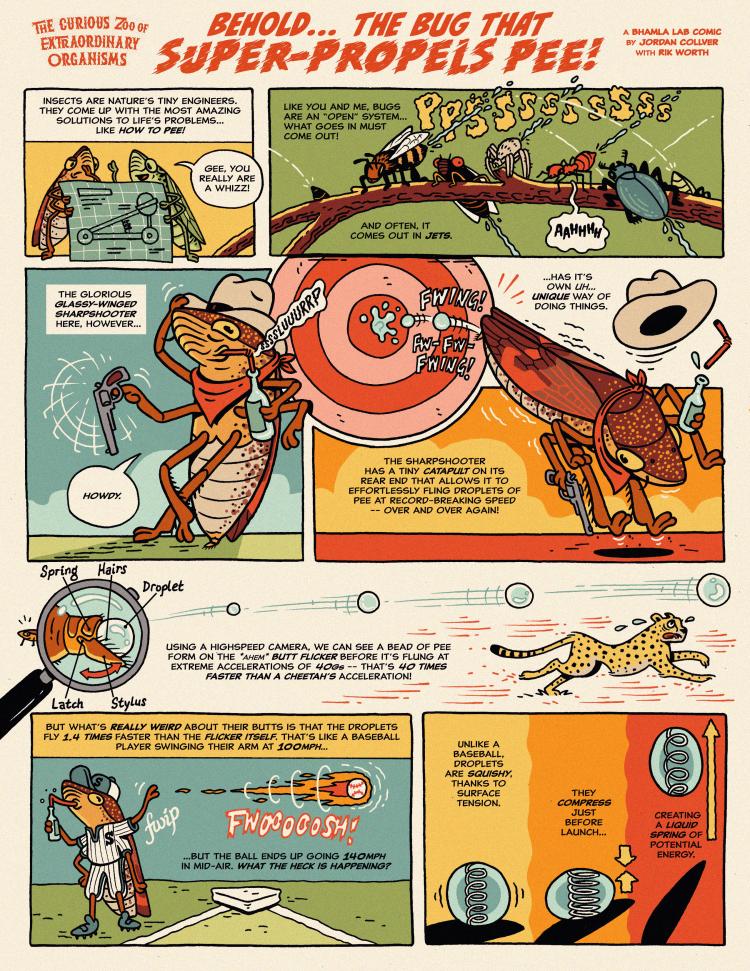Frugal engineering innovator Saad Bhamla headed to CU Boulder
Insects that eject their waste at super speeds. Worms that leap without legs. Bugs that use waxy tails to stabilize their jumps.
Saad Bhamla studies them all. His research has promising engineering applications, such as enhancing how smartwatches expel water to protect their electronics after a swim or engineering soft, legless robots capable of controlled, powerful jumps—potentially useful for future space exploration.
Currently an associate professor at Georgia Tech and recently named a 2025 Schmidt Polymath, Bhamla will join CU Boulder’s Department of Chemical and Biological Engineering and the BioFrontiers Institute in August.
“I’m excited to collaborate with new colleagues, explore fresh research directions at BioFrontiers and spin out more companies with CU Boulder’s support—especially given CU’s strong track record of turning academic research into real-world impact,” Bhamla said. “I’m also excited to launch Phase 2 of a plan to highlight the importance of basic science and develop tools to address planetary-scale challenges.”
In addition to studying biological systems for engineering applications, Bhamla teaches others to create ultra-low-cost devices using readily available materials. His notable inventions include a 20-cent paper centrifuge, a 23-cent electroporator—used in genetic medicines and commercialized as Piezo Therapeutics— and a $1 hearing aid.
Chemical and Biological Engineering Chair Professor Ryan Hayward said faculty are are thrilled to welcome Bhamla, citing the breadth and societal relevance of his work.
"Saad’s work spans an incredible range, from uncovering fundamental principles underlying biological behaviors to engineering low-cost devices that could greatly expand access to critical healthcare,” Hayward said.
That impact is already being felt globally, said Distinguished Professor Roy Parker, director of the BioFrontiers Institute, who noted that Bhamla’s innovations show how accessible technology can address urgent global health challenges.
In many parts of the world, access to basic medical equipment—both diagnostic and assistive—remains limited. For example, more than 340 million people live with disabling hearing loss, yet only about 3 percent of those in low-income countries have access to hearing aids. Bhamla’s lab developed a fully functional alternative that costs $1, compared to an average of $4,700 per device in the United States.
"In true BioFrontiers spirit, Saad’s work defies simple categorization, blending biology, engineering and physical sciences to solve complex problems — then applying those insights to create new technologies that benefit society," Parker said. "We’re inspired by his commitment to democratizing science and technology through Frugal Science.”
His Frugal Science Academy, which teaches high school students to build synthetic biology tools using everyday objects, will engage students and teachers from lower-resourced schools in Colorado while also impacting people globally through his inventions, Parker said.
In another outreach effort, Bhamla is making the wonders of biology accessible to children and historically excluded communities through a multilingual comic series called "A Curious Zoo of Extraordinary Organisms"—part of a broader initiative supported by an NSF CAREER grant.
“I can’t wait to see the new collaborations that will develop and flourish when he arrives at CU,” Parker said.
Frugal Science Academy

Associate Professor Saad Bhamla

Bhamla created a multilingual comic series, the "Curious Zoo of Extraordinary Organisms," that shares the wonders of biology.
Jungle Biomechanics Laboratory

